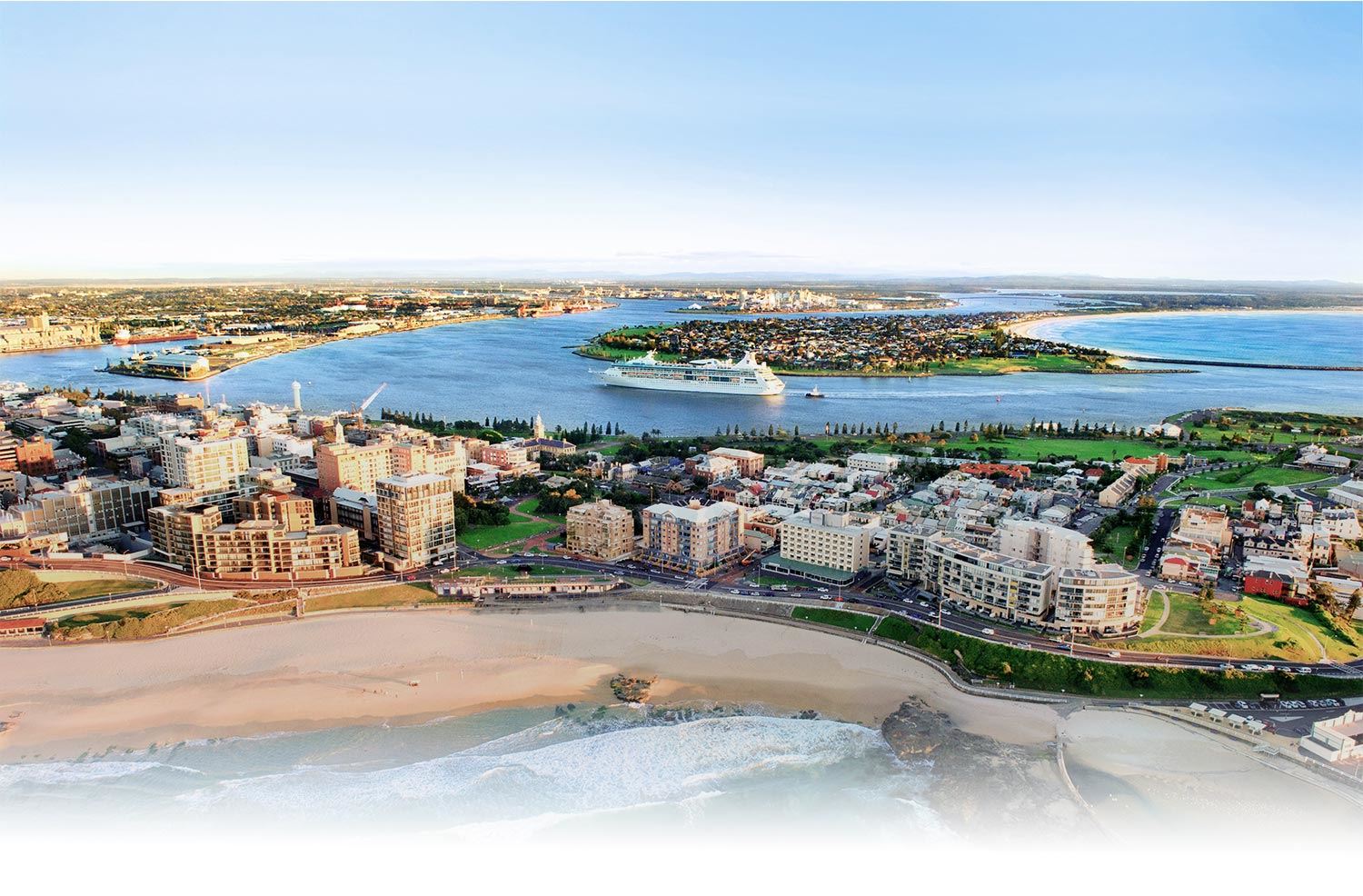
Annual sand top ups needed for Stockton coastline
09 Dec 2021
An ongoing program of sand nourishment will be the best way to provide a buffer for the coastline and beach amenity at Stockton according to a City of Newcastle evaluation, which considered a range of options for long term coastal management.
City of Newcastle presented the outcomes of the Evaluation Report to the Stockton Community Liaison Group at a community meeting in Stockton this morning, finding that following an initial mass sand nourishment effort, regular top ups will be more cost effective and efficient than structures like an artificial headland.
Newcastle Lord Mayor Nuatali Nelmes said the evaluation process was extensive and considered performance, environmental and social factors and included a cost benefit analysis.
“Four feasible coastal management options including an artificial reef, an artificial headland, sand back passing, and maintenance sand nourishment were assessed, and mass sand nourishment supported by annual sand nourishment top ups is considered the best solution for Stockton," Cr Nelmes said.
"The evaluation appraisal included both economic and non-economic factors to determine which scheme would best support our vision to provide an erosion buffer to Stockton, return recreational beach amenity and the sense of identity that the beach provides to the local community.
“The process included a cost-benefit analysis that demonstrated that the greatest economic value resulting from the proposed coastal management scheme is the value of improved beach amenity, which is a value that extends beyond Stockton residents to the people of Newcastle and NSW.”
With several NSW Government Agencies owning land along the northern section of the Stockton coastline, City of Newcastle is continuing to work with these stakeholders to ensure the proposed solution meets their needs.
"Support from affected agency landholders is critical to the successful implementation of the preferred solution as well as a mandatory requirement of the Coastal Management Act 2016,” Cr Nelmes said.
The community had input into the evaluation of the schemes via a survey completed earlier this year and Chair of the Stockton Community Liaison Group, Barbara Whitcher, said she believes there is broad support for ongoing sand nourishment at Stockton Beach.
"This information confirms the need for sand to be continually replenished on Stockton Beach, which we've known for some time, but it also prioritises this scheme over other options like an artificial headland or artificial reef to provide the buffer our coastline needs,” Ms Whitcher said.
"Some people in the community would have preferred an artificial reef or artificial headland. However, the economic benefit analysis confirms that sand nourishment is the most cost-effective scheme and is less intrusive on the environment.
"Now we want to see the preferred sand nourishment management scheme implemented as soon as possible."
City of Newcastle consultants also presented the Community Liaison Group with results of a Coastal Inundation Report, which identifies and maps the present and future coastal inundation hazard at Stockton from tides, surge and dynamic, wave-driven water levels that lead to over wash and overtopping of coastal barriers.
The findings further highlight the need to implement the mass sand nourishment strategy, outlined in the Stockton Coastal Management Program 2020, which will mitigate this risk within the medium term.
City of Newcastle’s next step is to progress discussions about funding the coastal management scheme with the State Government, which established the Deputy Premier’s Stockton Beach Taskforce to provide advice and recommendations on issues including sand sourcing and to seek priority capital and operational funding.
In addition to managing the Stockton coastline, the newly formed Newcastle Coastal Management Working Group will consider coastal management of the entire 14 kilometres of coastline in the Newcastle local government area as well as the Hunter Estuary as Coastal Management Programs for these areas are developed in 2022-23.
Work completed by City of Newcastle over the past 12-18 months to progress coastal management at Stockton since the certification of the Stockton Coastal Management Program includes:
- Sand Movement Study
- Coastal Inundation Assessment
- Love Our Coast Community Survey – capturing beach visitation data
- Feasibility Assessment into coastal management options for the Extended CMP area
- Workshops on the four complementary management scheme options with Stockton Community Liaison Group, NSW Government Agencies, Worimi and a month-long community survey capturing broad community feedback on the four options
- Evaluation Report drafted
- Grant Applications – harbour investigations and to support the development of the extended CMP
- Investigation of harbour-based sand sources commenced
- Consultation with Port of Newcastle and relevant government agencies to confirm Stockton as the primary beneficial reuse location of suitable sand within the renewal of the Sea Dumping Permit for maintenance dredging within the harbour
- Review of Offshore Sand Assessment Report
- Advice on planning pathway offshore sand extraction and placement
- Formed and held first meeting of the Newcastle Coastal Management Working Group
- Ongoing implementation of the CMP 2020 actions including rockbags, dune works, sand scraping and renewal of accessways.











